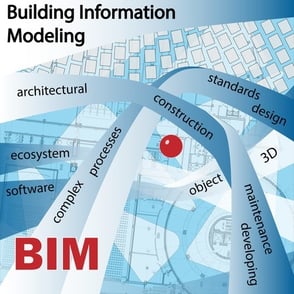
The first concern of many companies considering a move to paperless QC or electronic inventory management from paper records is that their information will be at greater risk of loss. In fact, the opposite is true. We've written previously about precast RFID tracking as a means of competitive advantage (How Customer Value is Created With Infrastructure Product Tracking) and as a manufacturing productivity solution (Inventory Control, Farewell Frustration). In this post we will show you why digital product tracking is actually a safer practice than using paper.
1. Off-site data storage ensures safety
This past week we called on a precast concrete manufacturer that had recently experienced a fire in its office. We were sad to learn that all records were lost (which, actually, inspired this post). The primary advantage of RFID tracking systems (offered as a subscription service) is that they store their data in server farms managed by large, well-heeled companies such as Microsoft (our provider) and Amazon. These companies spread their servers out geographically, maintain redundant storage systems to minimize (virtually eliminate) the risk of data loss, and offer state-of-the-art security. The records are therefore much safer than paper files left in a filing cabinet. This notwithstanding, if the move is still a bit unsettling at first, the RFID tracking service subscriber can always print out and maintain paper files of any records stored digitally. So, they can have the best of both worlds... immediate paper access and virtually no risk of losing their records.
2. Digital systems can authorize access
Whereas paper files are stored in filing cabinets accessible to anyone (often, after spending time in piles of folders on the office floor), digital files are available only to parties who have been authorized to review or manage them. Systems can be set up to allow various levels of authority in utilizing the files. Some will be authorized only to review the files; others authorized to create and review; and a select few to administer the files. This is particularly valuable in ensuring that highly sensitive records (such as QC reports) cannot be changed outside of protocol. As such, this reduces risk but also offers better credibility about security to prospects and customers.
3. Digital storage minimizes filing errors
Whereas the prevention of the first two risks can be considered home runs, this is probably a single. But, as we all know, games are won more often with consistent hitting than the power ball. The principles of lean manufacturing recognize that the elimination of many small wastes creates large productivity gains. With electronic record-keeping, the following types of waste (and major frustration!) are eliminated:
- Looking for a record that was not filed or was filed incorrectly (especially when the inspector is waiting);
- Wading through paper files (when a digital search would instantly reveal the record);
- Finding an error in a paper record that should have been recognized at the time of filing (and now requires that the report be re-filed or, worse, that the project be done again).
It is understandable that change induces uncertainty and therefore concern. This is certainly the case when infrastructure manufacturers consider moving away from the paper-based record-keeping system that has been in place for hundreds of years. However, for the reasons we listed above, the safer bet is to move to the digital realm.
About Idencia
Our purpose at Idencia is to offer infrastructure asset tracking solutions that improve productivity throughout the infrastructure value chain.. to create lean infrastructure. Our subscription offering applies RFID tracking to infrastructure products from the time of manufacture through end-of-life. As a cloud-hosted product tracking system that is seamless between manufacturers, contractors and asset managers, Idencia adds information value to all, eliminates redundancy and saves time. If you would like to learn how Idencia can help your company, we invite you to download a copy of our Idencia Primer ebook.
Tags:
Idencia Use Cases
Jan 30, 2016 1:45:22 PM




Comments